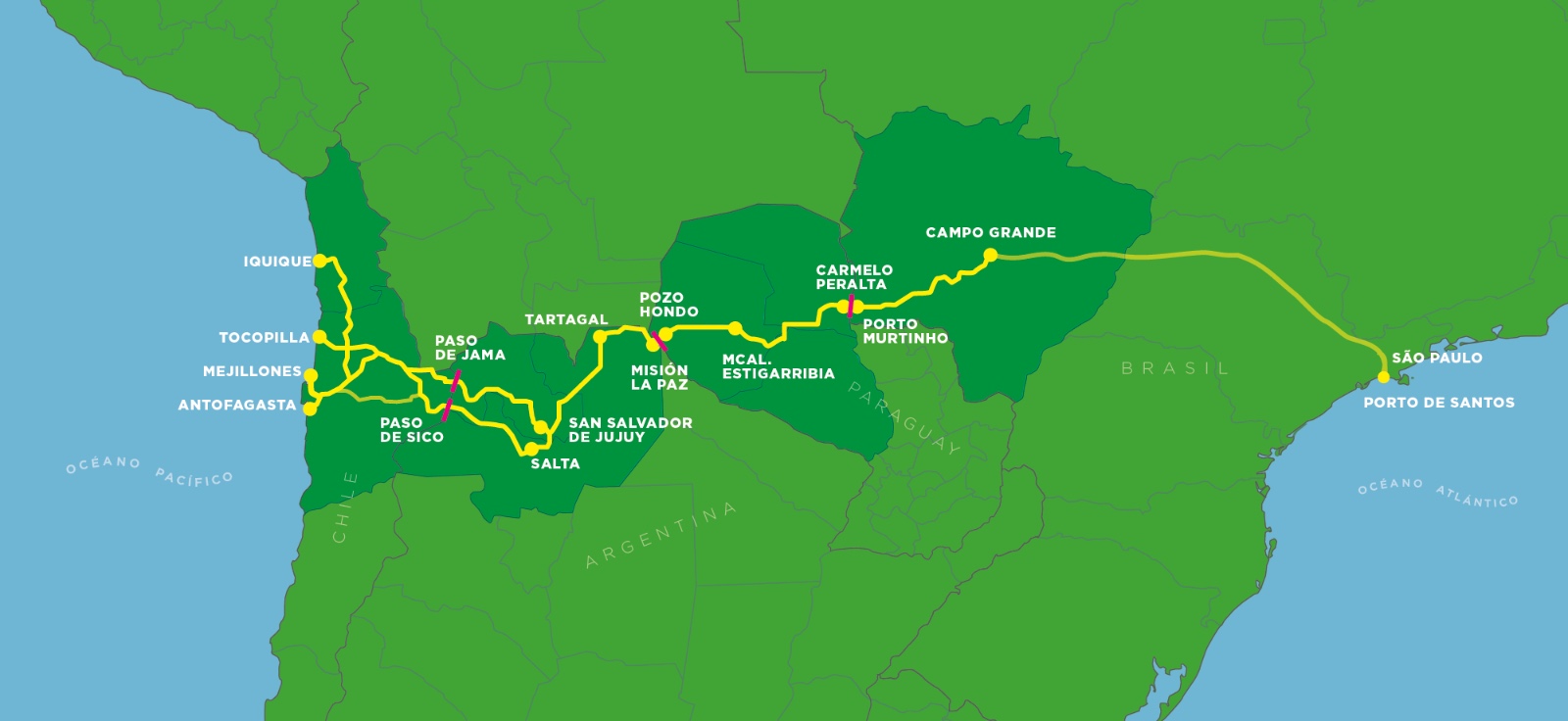4 Countries - 8 Territories
Regions of Tarapacá and Antofagasta (CHILE), Provinces of Jujuy and Salta (ARGENTINA), Departments of Boquerón, Presidente Hayes, and Alto Paraguay (PARAGUAY), State of Mato Grosso do Sul (BRAZIL)
3.250 Kms.
Distance between the Pacific and Atlantic Oceans
5 Border Crossings
Puerto Murtinho - Carmelo Peralta; Pozo Hondo - Misión la Paz; Paso de Jama; Paso de Sico; Socompa Station (railway)
4 Pacific Ports
Port of Iquique, Port of Antofagasta, Ports in Mejillones and Tocopilla Terminals

